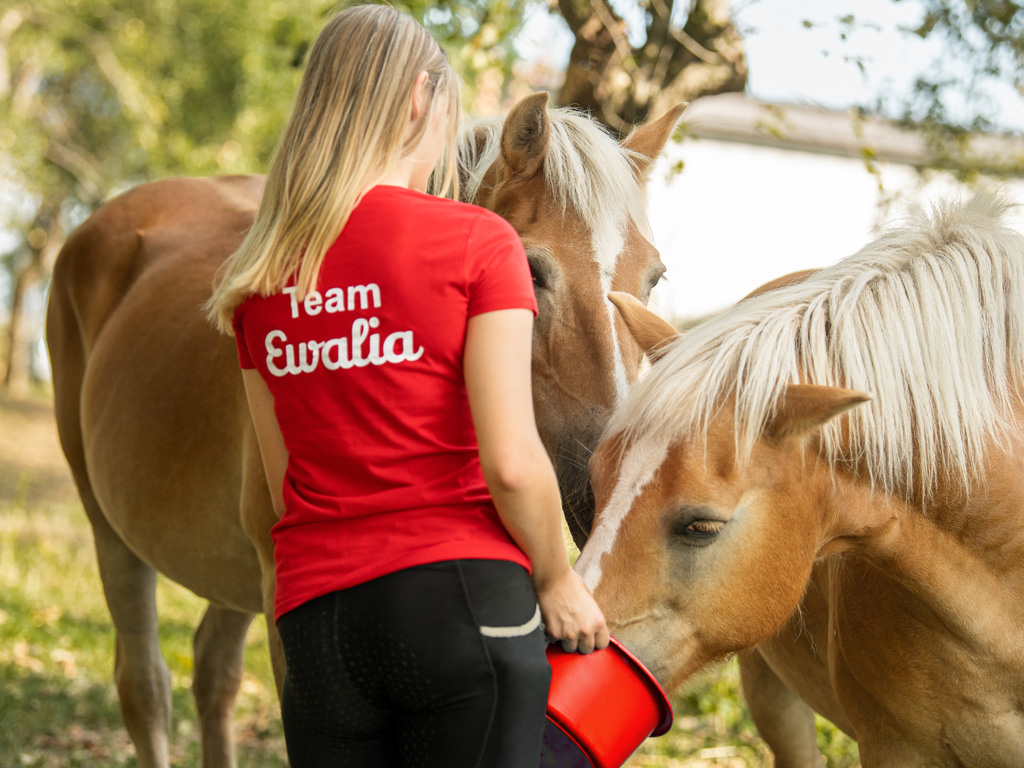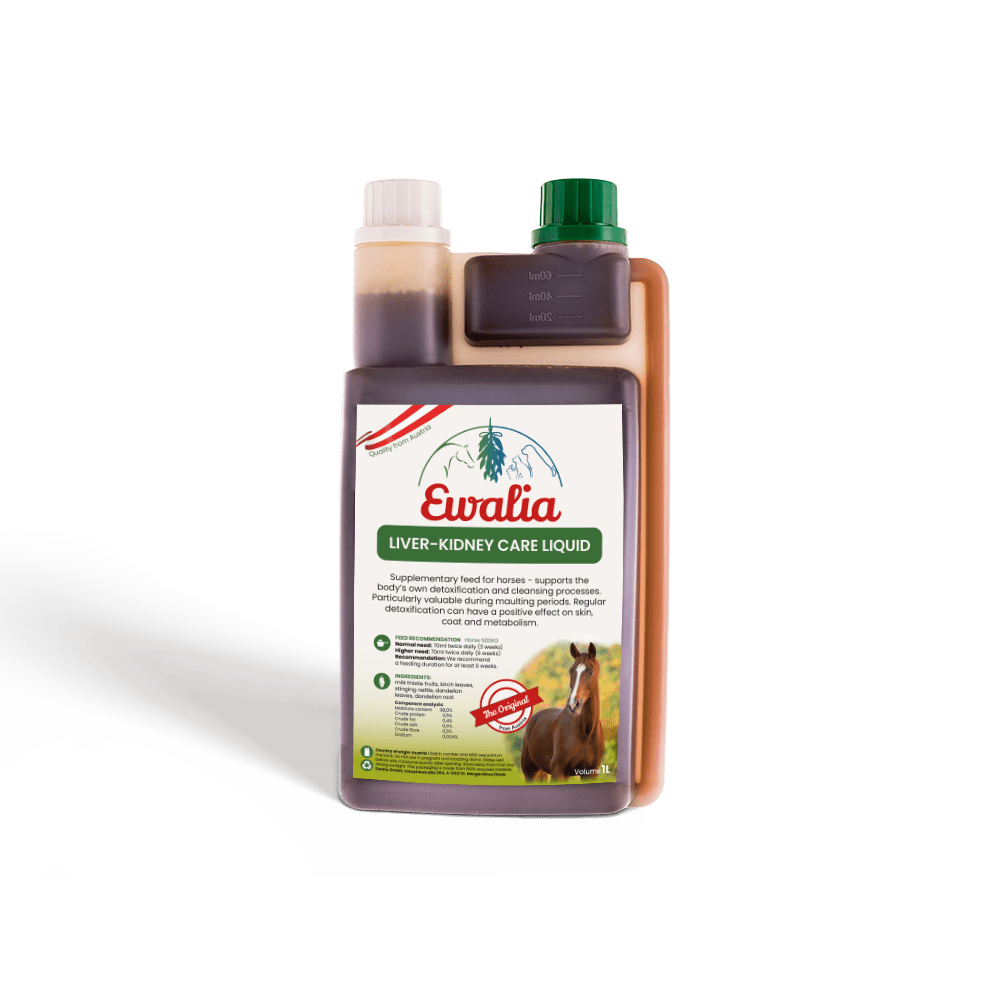During shedding the liver and kidneys are under great strain!

The coat change and the challenge it poses to the metabolism can lead to overloading of the liver and kidneys.
Possible symptoms of liver and kidney overload:
- Dull coat, especially when the hair has "ticks" on the ends.
-
Poor or delayed coat changes, poor winter coat.
-
Skin problems like:
- eczema, sweet itch
- mud fever, greasy heel
- tendency to phlegmon
- nettle rash
- hypersensitivity to insect bites, detergents etc.
- general itching
- warts and sarcoids
- tendency to fungi, biting lice and other ectoparasites
- general hypersensitivity of the skin - Laminitis
-
Hoof abscesses, thrush
- · Oedemas, e.g.:
- swollen legs "rest day phlegmon
- spongy hocks or carpal joints
- swollen, stiff mane ridge
- oedema pads on the flanks, often confused with fat pads -
Allergies
-
Poor wound healing
-
Non-typical sweating, i.e. excessive or deficient sweating, hyperventilation due to lack of sweating
-
Too much or too little drinking, too much or too little urine
-
Greedy consumption of salt or mineral licks
If one doesn't recognise the early signs, they can manifest as metabolic problems. The diseases for which metabolism and nutrition are discussed as causes in professional circles, are, apart from the obvious gastrointestinal illnesses like ulcers, colics etc:
- Equine Cushing's Syndrome
-
Insulin resistance ("diabetes", mainly in the context of Cushing's or EMS)
-
Polysaccharide Storage Myopathy (PSSM)
-
Lumbago
-
Laminitis
- Hoof roll inflammation (podotrochlosis)
-
Osteochondrosis dissecans (OCD, chips, joint mice)
-
Navicular and sesamoid disorders as well as wobbler syndrome, especially in young horses
-
Sweet itch
-
Arthrosis and bone cysts in young horses
-
Equine Metabolic Syndrome
In order to avoid such severe and sometimes hardly or no longer treatable diseases, attention should be paid at an early stage to symptoms of liver and kidney overload. Especially during shedding the kidneys are under great strain in horses. It is also precisely at this time that the switch-over from pasture to hay, or hay to pasture, as well as the regular deworming and vaccinations take place. Supporting the kidneys during these phases is essential and makes sense to keep your horse healthy for as long as possible.
If the liver is restricted in its function by metabolic overload, it can no longer adequately fulfil its detoxification function.
This disorder can manifest as kryptopyrroluria (KPU) in the long term. This is not detectable in the blood picture, but can be diagnosed with the help of a urine sample and the determination of the kryptopyrrole and indican levels. A horse cannot emerge from this condition without outside help. Therapeutic intervention is necessary until the horse is able to stabilise itself again.
Indications of major detoxification disorders:
- All the symptoms of liver and kidney problems
-
Recurring colic despite optimal conditions and nutrition
-
Problems in the musculoskeletal system such as intermittent lameness and back tension, that cannot be explained from a muscle or osteopathic point of view
-
Watery stools, diarrhoea despite feed designed for horses
- Chronic coughing, therapy-resistant coughing
-
Susceptibility to overbites, bone demineralisation, tooth demineralisation
-
Multi-morbid horses, i.e. many different disease states that are sometimes difficult to define
-
Non-responders, i.e. horses that do not respond or respond poorly to treatment














